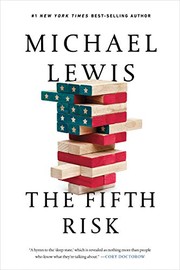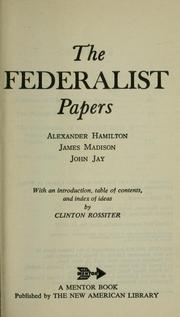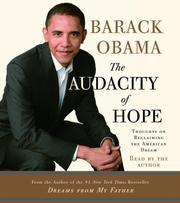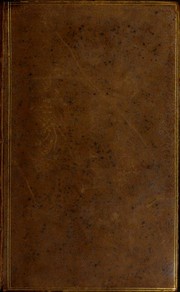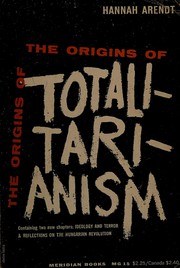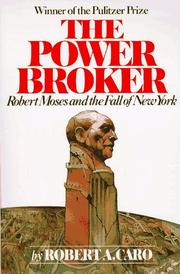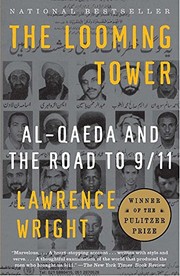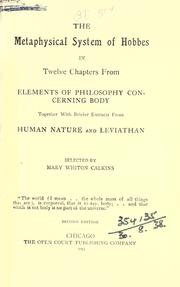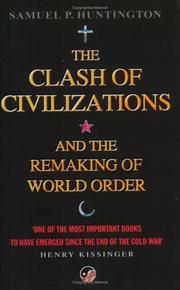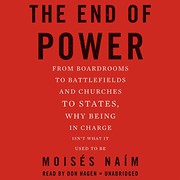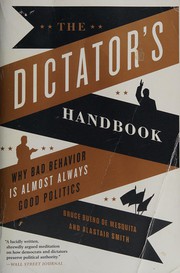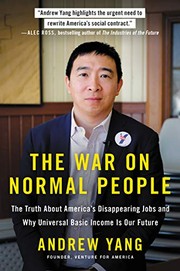Are you eager to dive into the fascinating world of government and politics? Look no further! We’ve curated a list of the 20 best books on government that will captivate and educate you. Whether you’re a political science enthusiast or simply curious about how governments operate, these government books will provide insight and knowledge on the intricacies of governing systems, policies, and the impact of political decisions. Get ready to expand your understanding of the world with these compelling reads!
Contents
- 1 20 Best Books About Government
- 2 The Fifth Risk
- 3 The Federalist Papers
- 4 The Road to Serfdom
- 5 The Audacity of Hope
- 6 The Prince
- 7 The Origins of Totalitarianism
- 8 The Constitution of Liberty
- 9 The Art of War
- 10 The Power Broker
- 11 The Communist Manifesto
- 12 The Looming Tower
- 13 The Leviathan
- 14 The Clash of Civilizations and the Remaking of World Order
- 15 The Gulag Archipelago
- 16 The Righteous Mind
- 17 The End of Power
- 18 The Dictator’s Handbook
- 19 The War on Normal People
- 20 The Shock Doctrine
- 21 The Death and Life of Great American Cities
- 22 Conclusion
- 23
- 24 Reading List of Deception Books – 2024 Update
- 25 Top 20 Best Books on Cassandrof Troy:2024 Edition
- 26 20 The Holy Grail Best Books to Read – The 2024 Edition
20 Best Books About Government
The Fifth Risk
by Michael Lewis
The Fifth Risk by Michael Lewis is a captivating book about government that delves into the inner workings of various government departments and the potential consequences of inadequate leadership and management. Lewis explores the lesser-known risks facing the United States government, from the Department of Energy to the Department of Agriculture, and the impact of neglecting these crucial areas. Through compelling storytelling and in-depth research, Lewis sheds light on the vital role of these departments and the potential fallout if they are not effectively managed. The book offers a thought-provoking analysis of the challenges and responsibilities within the public sector, making it a must-read for anyone interested in understanding the complexities of governance and the potential risks of neglecting them.
The Federalist Papers
by Alexander Hamilton, James Madison, and John Jay
The Federalist Papers, written by Alexander Hamilton, James Madison, and John Jay, is a seminal book on government. Published in 1788, it comprises a collection of 85 essays that advocate for the ratification of the United States Constitution. The authors, writing under the pseudonym “Publius,” provide insightful commentary on the structure and function of the new American government, arguing for a strong central authority while also advocating for the protection of individual rights. The government book delves into the principles of the Constitution, addressing issues such as the separation of powers, the importance of checks and balances, and the necessity of a federal union. The Federalist Papers is an essential read for anyone interested in understanding the foundation of American governance and the enduring relevance of its principles.
The Road to Serfdom
by F.A. Hayek
The Road to Serfdom by F.A. Hayek is a seminal book on government and the dangers of central planning. Hayek argues that when a government takes too much control over the economy and individual liberties, it leads to a path of serfdom and authoritarianism. He warns against the rise of collectivism and the concentration of power in the hands of a few, as it inevitably leads to the loss of personal freedom and the decline of society. The book presents a powerful argument for the importance of individualism, free markets, and limited government intervention. Hayek’s insights are as relevant today as they were when the book was first published in 1944, making it a timeless government book that continues to shape political and economic discourse.
The Audacity of Hope
by Barack Obama
The Audacity of Hope by Barack Obama is a compelling and insightful book on government. In this thought-provoking memoir, Obama shares his personal journey and political insights, offering a unique perspective on the challenges facing our society and the potential for positive change. Through powerful storytelling and thoughtful analysis, Obama explores the complexities of governance, the importance of bipartisanship, and the values that can unite us as a nation. The book offers a captivating glimpse into the inner workings of government and the author’s vision for a better future. Whether you’re a political enthusiast or simply interested in the inner workings of our nation, this government book offers a compelling and inspiring read.
The Prince
by Niccolò Machiavelli
The Prince by Niccolò Machiavelli is a classic book on government and leadership. Written in the 16th century, it offers timeless insights into the nature of power, politics, and governance. Machiavelli’s pragmatic and ruthless approach to leadership has made this book about government both controversial and influential. The author’s advice on how rulers should gain and maintain control has sparked intense debate over the centuries. The Prince remains a thought-provoking read for anyone interested in the intricacies of leadership and the exercise of authority. Machiavelli’s astute observations and shrewd strategies continue to captivate readers, making this government book a must-read for those seeking a deeper understanding of political dynamics.
The Origins of Totalitarianism
by Hannah Arendt
The Origins of Totalitarianism by Hannah Arendt is a seminal book on government that explores the rise of totalitarian regimes in the 20th century. Arendt delves into the historical, political, and social factors that led to the emergence of totalitarianism in Nazi Germany and the Soviet Union. She examines the impact of imperialism, racism, and anti-Semitism on the development of these oppressive regimes, as well as the erosion of individual liberties and the manipulation of truth and propaganda. Arendt’s incisive analysis sheds light on the dangers of unchecked power and the fragility of democratic institutions. This government book is a thought-provoking and insightful read for anyone interested in understanding the roots of totalitarianism and its implications for modern society.
The Constitution of Liberty
by Friedrich Hayek
The Constitution of Liberty by Friedrich Hayek is a profound exploration of the principles of a free society. This influential book on government argues for the importance of individual liberty, the rule of law, and limited government intervention. Hayek delves into the dangers of central planning and the need for a system that allows for spontaneous order and individual choice. Through his thorough analysis, he makes a compelling case for the protection of individual rights and the importance of a government that is restrained from overstepping its bounds. The Constitution of Liberty is a seminal work that continues to shape discussions on the role of the state and the importance of individual freedom in society.
The Art of War
by Sun Tzu
The Art of War, a classic treatise on military strategy, is attributed to the ancient Chinese military strategist Sun Tzu. This influential book on government is filled with insights and tactics for achieving victory in warfare. However, its wisdom extends beyond the battlefield, offering valuable lessons for leadership, decision-making, and conflict resolution in various aspects of life. The Art of War is not just a book about government or military tactics, but a timeless guide to understanding and navigating the complexities of power, influence, and competition. Its profound teachings have been embraced by business leaders, politicians, and scholars, making it a must-read for anyone seeking to gain a deeper understanding of strategy and leadership.
The Power Broker
by Robert A. Caro
The Power Broker by Robert A. Caro is a monumental book about government and an in-depth biography of Robert Moses, a man who held unparalleled influence in shaping the infrastructure of New York City. Caro’s meticulous research and compelling storytelling reveal how Moses, unelected and unaccountable, wielded his power to transform the city’s landscape while disregarding the needs of marginalized communities. This government book sheds light on the unchecked authority and backroom deals that shaped the city’s development, making it a captivating and eye-opening read for anyone interested in urban planning, politics, and the impact of power on society.
The Communist Manifesto
by Karl Marx and Friedrich Engels
The Communist Manifesto, written by Karl Marx and Friedrich Engels, is a revolutionary book on government that lays out the principles of communism and critiques the capitalist system. Published in 1848, it argues that all of human history is marked by class struggle and that the working class, or proletariat, will eventually overthrow the ruling class, or bourgeoisie. The manifesto calls for the abolition of private property and the establishment of a classless society where the means of production are owned collectively. It has had a profound impact on the course of history and continues to be a book about government that sparks debate and inspires movements for social and economic change.
The Looming Tower
by Lawrence Wright
The Looming Tower by Lawrence Wright is a gripping and meticulously researched book on government that delves into the events leading up to the 9/11 attacks. Wright explores the rise of al-Qaeda and the failures within various government agencies that allowed for the tragic events to unfold. Through in-depth interviews and extensive archival research, the book paints a complex and nuanced portrait of the individuals and organizations involved in the lead-up to the attacks. The Looming Tower is a government book that offers a fascinating and comprehensive look at the interplay between intelligence agencies, foreign policies, and extremist groups, making it an essential read for anyone interested in understanding the complexities of global terrorism and the role of governments in combating it.
The Leviathan
by Thomas Hobbes
The Leviathan by Thomas Hobbes is a groundbreaking book about government and political philosophy. Published in 1651, it remains a powerful and influential work that explores the nature of society and the role of government in maintaining order and stability. Hobbes presents the idea of a social contract, arguing that individuals agree to give up certain freedoms in exchange for protection and security from a powerful sovereign authority. He describes the state of nature as a chaotic and violent place, where life is “solitary, poor, nasty, brutish, and short,” and proposes that a strong government, or ‘leviathan’, is necessary to prevent this state of nature from prevailing. This seminal work continues to provoke thought and debate about the nature of power and the role of the state in society.
The Clash of Civilizations and the Remaking of World Order
by Samuel P. Huntington
The Clash of Civilizations and the Remaking of World Order by Samuel P. Huntington is a thought-provoking book about government that challenges the traditional view of the post-Cold War world. Huntington argues that future conflicts will not be based on ideology or economic power, but on cultural and religious differences between civilizations. He identifies seven major civilizations, including Western, Islamic, and Confucian, and suggests that these cultural differences will shape the future of global politics and conflict. The book has sparked intense debate and criticism, but its insights into the role of culture and religion in shaping international relations make it a valuable and influential book on government.
The Gulag Archipelago
by Aleksandr Solzhenitsyn
The Gulag Archipelago by Aleksandr Solzhenitsyn is a monumental and harrowing book on government oppression and the abuse of power. This powerful work delves into the dark and sinister world of the Soviet labor camps, known as the Gulag, where countless individuals suffered under the brutal regime of the Soviet government. Solzhenitsyn’s firsthand account and meticulous research expose the atrocities committed by the government, revealing the depths of human suffering and the resilience of the human spirit in the face of tyranny. Through vivid storytelling and compelling analysis, the book about government shines a light on the inherent dangers of unchecked authority and the importance of standing up against injustice. A must-read for anyone interested in understanding the impact of government oppression on society.
The Righteous Mind
by Jonathan Haidt
The Righteous Mind by Jonathan Haidt is a thought-provoking exploration of the moral foundations that shape our political and social beliefs. Haidt delves into the psychological and evolutionary origins of our moral instincts, and how these instincts influence our political affiliations and attitudes towards social issues. By examining the role of emotions and intuitions in our decision-making processes, Haidt offers profound insights into the nature of human morality and the dynamics of political discourse. This book provides a compelling argument for understanding the complexities of moral psychology and its implications for governance and social harmony. Whether you’re interested in psychology, political science, or simply curious about the forces that shape our beliefs, The Righteous Mind is an enlightening read that sheds light on the intricacies of human nature and its impact on society.
The End of Power
by Moisés Naím
The End of Power by Moisés Naím is a thought-provoking book about the shifting dynamics of authority and influence in the modern world. Naím explores the ways in which traditional power structures are being disrupted and decentralized, challenging the established order of power. Through compelling examples and insightful analysis, the book delves into the implications of these changes for politics, business, and society at large. This groundbreaking book on government offers a fresh perspective on the nature of power and the forces shaping our world today. Naím’s exploration of the erosion of traditional power dynamics makes The End of Power a must-read for anyone interested in understanding the complexities of governance and influence in the 21st century.
The Dictator’s Handbook
by Bruce Bueno de Mesquita and Alastair Smith
The Dictator’s Handbook by Bruce Bueno de Mesquita and Alastair Smith is a fascinating book about government that explores the dynamics of political power. The authors delve into the intricate workings of political systems, using game theory to analyze the behavior of leaders and the strategies they employ to maintain power. Through a captivating blend of history, case studies, and political science, the book provides a thought-provoking perspective on how leaders, from democratically elected officials to autocratic rulers, wield power and make decisions. The authors argue that the key to understanding politics lies in understanding the incentives of those in power, and how these incentives drive political behavior. Whether you’re a student of political science or simply interested in understanding the inner workings of government, The Dictator’s Handbook offers a compelling and insightful exploration of political power.
The War on Normal People
by Andrew Yang
The War on Normal People by Andrew Yang is an eye-opening book about the challenges facing the average American in the age of automation and artificial intelligence. Yang, a former presidential candidate, makes a compelling argument for the need to address the displacement of jobs and the growing economic inequality in our society. He offers a stark warning about the potential social and political consequences if we fail to take action. This thought-provoking government book provides a deep dive into the impact of technology on the workforce and offers innovative solutions to ensure that all citizens can thrive in the rapidly changing economy. Whether you’re a policy wonk or simply concerned about the future of work, The War on Normal People is a must-read that will challenge your assumptions and spark important conversations.
The Shock Doctrine
by Naomi Klein
The Shock Doctrine by Naomi Klein is a provocative book that explores the use of ‘shock’ as a tool for implementing controversial government policies. Klein argues that throughout history, governments and powerful institutions have capitalized on moments of crisis and upheaval to push through radical economic and political agendas. With meticulous research and compelling storytelling, Klein unearths the hidden connections between disasters, wars, and corporate interests. The book sheds light on the ways in which ‘disaster capitalism’ has been used to exploit vulnerable populations and reshape societies in the favor of the elite. This eye-opening book about government offers a critical analysis of the intersection between politics, economics, and power, and challenges readers to question the motives behind government actions and policies.
The Death and Life of Great American Cities
by Jane Jacobs
The Death and Life of Great American Cities by Jane Jacobs is a groundbreaking book on urban planning and city life. Jacobs challenges the traditional ideas of city planning and advocates for the importance of organic, diverse and vibrant neighborhoods. She critiques the top-down approach taken by many city planners and argues that a bottom-up, community-driven approach is essential for creating successful and thriving cities. This influential government book sparked a revolution in urban planning and continues to be a key text for anyone interested in understanding the complexities of city life and the role of local communities in shaping their own environments.
Conclusion
Exploring the complexities of Government and its impact on society, these 20 best books about government offer a comprehensive understanding of political systems, governance, and public policy. From classic political theories to contemporary analyses of power dynamics, these books provide invaluable insights into the workings of government. Whether you’re a student of political science or a curious citizen, these books are essential reads for anyone seeking a deeper understanding of the role and influence of government in our world.
Which Government book is best?
The best book on Government can vary with personal preference, but three widely recommended titles are:
- The Fifth Risk by Michael Lewis,
- The Federalist Papers by Alexander Hamilton, James Madison, and John Jay,
- The Road to Serfdom by F.A. Hayek.
Each offers valuable insights and could be a great starting point.
What are the best books to learn about Government?
For those looking to learn about Government, there is a wealth of literature that can provide a comprehensive understanding of the subject. Some of the most highly recommended books include:
- The Fifth Risk by Michael Lewis,
- The Federalist Papers by Alexander Hamilton, James Madison, and John Jay,
- The Road to Serfdom by F.A. Hayek,
- The Audacity of Hope by Barack Obama,
- The Prince by Niccolò Machiavelli,
- The Origins of Totalitarianism by Hannah Arendt,
- The Constitution of Liberty by Friedrich Hayek,
- The Art of War by Sun Tzu,
- The Power Broker by Robert A. Caro,
- The Communist Manifesto by Karl Marx and Friedrich Engels
These books offer a range of perspectives on Government, covering various aspects and approaches to the subject.
What are the best books on Government?
The best books on Government include:
- The Fifth Risk by Michael Lewis,
- The Federalist Papers by Alexander Hamilton, James Madison, and John Jay,
- The Looming Tower by Lawrence Wright,
- The Leviathan by Thomas Hobbes,
- The Art of War by Sun Tzu,
- The Origins of Totalitarianism by Hannah Arendt.
Each offers unique insights into the subject. While these books on the topic of Government are highly regarded, it’s important to note that any list of ‘best’ books is subjective and reflects a range of opinions.
What are the best Government books of all time?
Choosing the best Government books of all time can vary depending on who you ask, but seven titles that are often celebrated include
- The Fifth Risk by Michael Lewis,
- The Federalist Papers by Alexander Hamilton, James Madison, and John Jay,
- The Prince by Niccolò Machiavelli,
- The Art of War by Sun Tzu,
- The Communist Manifesto by Karl Marx and Friedrich Engels,
- The Leviathan by Thomas Hobbes,
- and The Looming Tower by Lawrence Wright.
Each of these books has made a significant impact in the field of Government and continues to be influential today.

